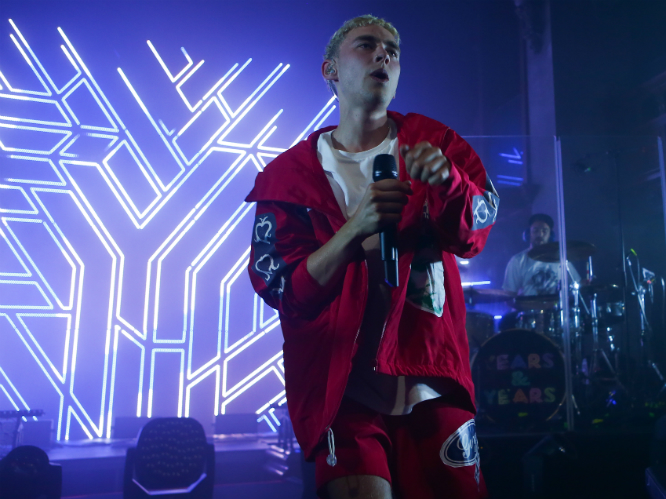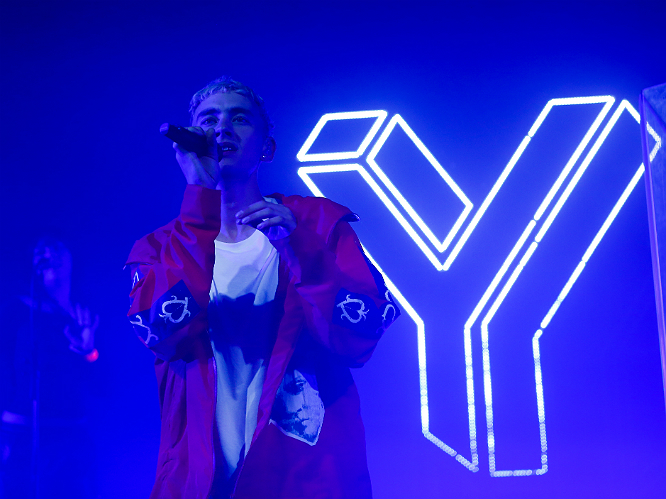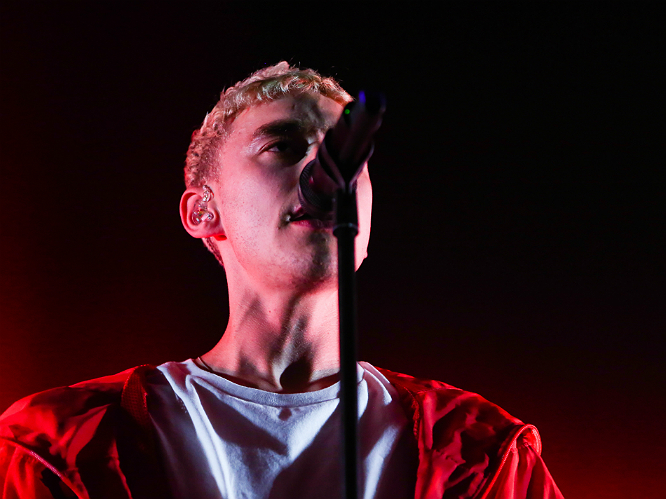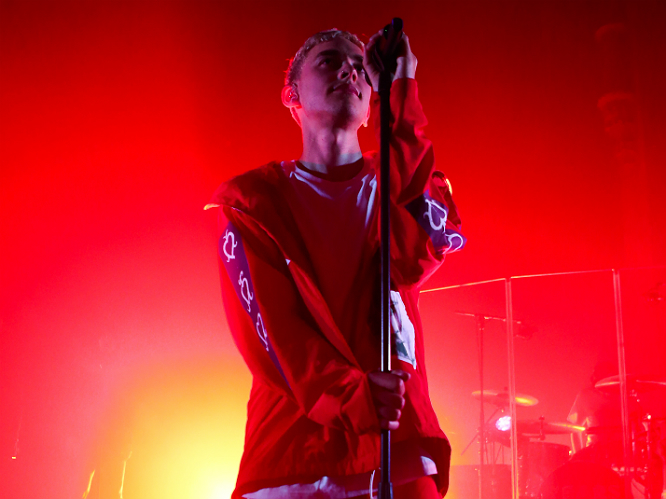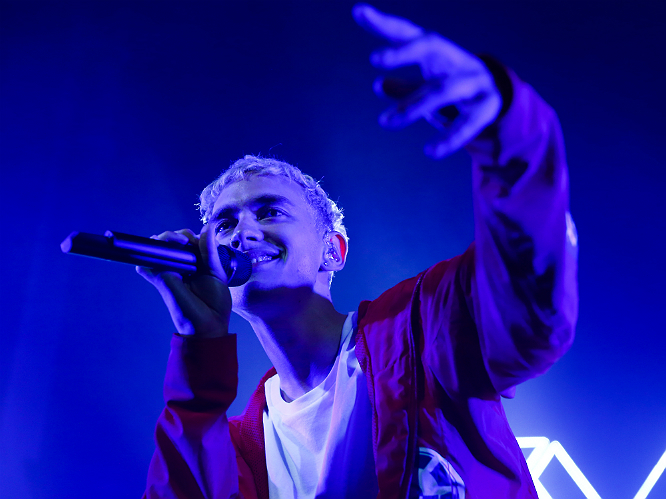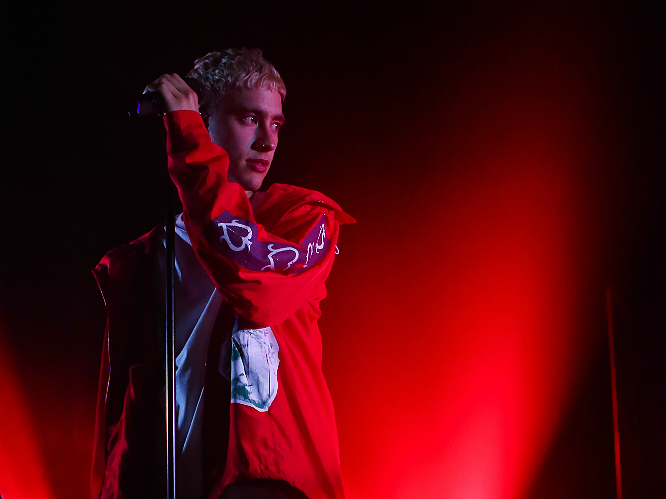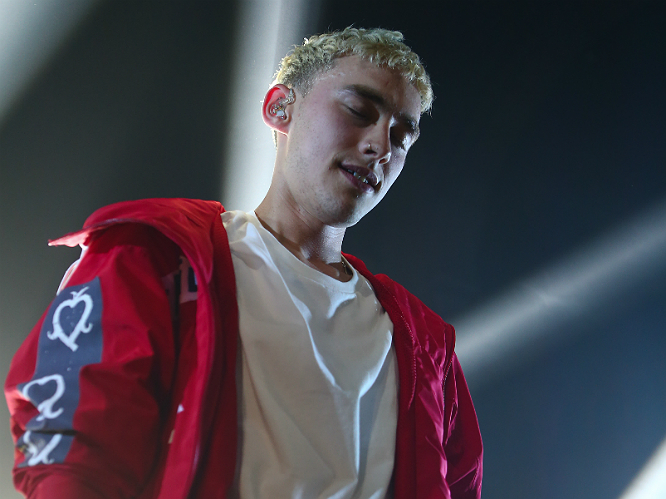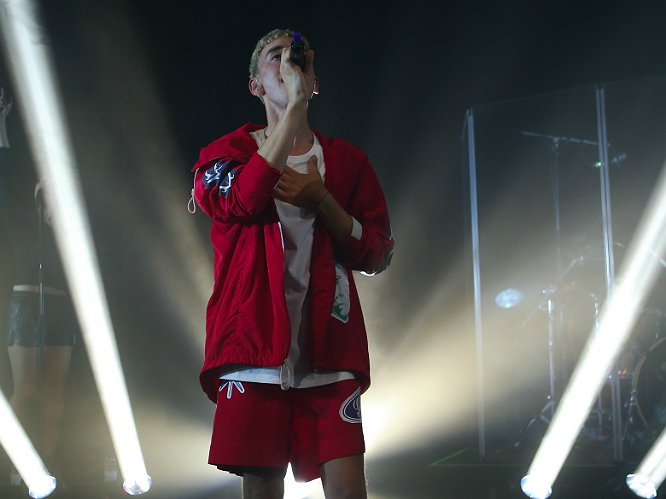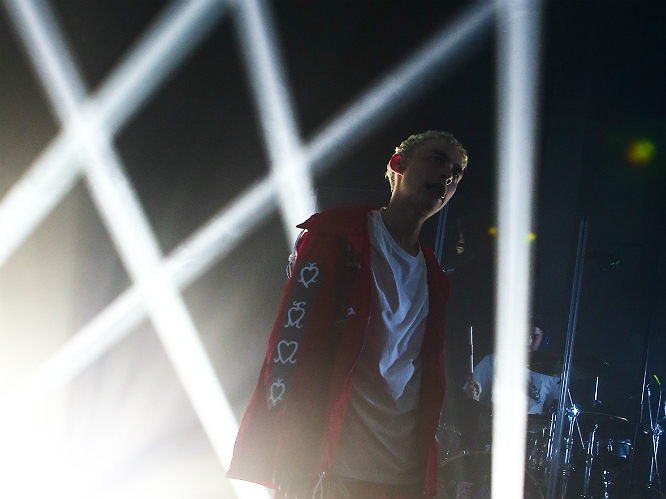More about: Years & Years
"I haven't been home, I haven't cooked at all, I'm good at sleeping in small confined spaces, people recognise me in the street..." Olly Alexander, on a rare day off between trips to Poland and New York, is listing the things that have changed in the six months since Years & Years were named BBC's Sound of 2015. The list is exhausting to listen to.
The singer had a taste of fame before he entered the music world. As an actor, he starred in The Riot Club, God Help The Girl, Penny Dreadful and Skins, the latter of which earned him a modest but fervent online fanbase. Since Years & Years burst onto the scene at the start of this year though, and a top 40 single was quickly followed by a No.1, that fanbase has grown into something formidable.
"It can be quite intense, the level of attention from fans," he admits, "because they seem to always be online." He's not exaggerating either. Within minutes of sending his latest tweet - a photo of himself in a metallic pink tunnel - the replies had begun rolling in: "please notice me once"; "ilysm"; "I LOVE YOU OLY"; "MY ANGEL"; "why u look flawless, like god and i look like shit." One fan photoshopped a picture of herself alongside him, and when he replied with "U look gr8", others rushed to congratulate her. "I think it's," he pauses. "I think it's a good thing. Yeah. I'm trying to work it out."
"It's kind of just grown and grown and grown," he continues, "and now it's become impossible to even get in touch with half the people - but I'm, like, invested in their lives. That's probably not what you want to hear from me now, but I'm telling you! I see their Twitter pages, and I see how they interact and I get involved, you know, and it's probably detrimental to me sometimes, because I get a bit like, 'I want to help this person, I want to talk to them.' Because they tell you all their issues, and I feel for them because I was the weird kid at school, and I didn't have the internet, and I just imagine if I had the internet at school I'd be fucking nuts. But I think there's an element of, you have to step away from it a bit. You have to have your own sanity."
Watch the video for 'Shine' below
Alexander's openness about his sexuality (he is one of very few gay men in music to use male pronouns in lyrics, and often discusses his relationship with Clean Bandit's Neil Milan) has proven a particularly strong source of inspiration for his fans. On an almost daily basis, someone credits him as the reason they had the courage to come out. Today though, he'd rather deflect the praise onto Sam Smith.
"Whether you like him or not," he explains, "he actually has been quite an incredible role model for people, and has been able to, like, speak out about issues and be a gay popstar." I'm not sure it dawns on him that he's also describing himself. "I don't know if that's happened ever in the past."
Then there's Miley Cyrus, who's managed to bring the conversation of genderqueerness and pansexuality into the mainstream. "I love Miley for that. You might not like her music, but not being part of the gender binary is a reality for lots of people, and they're never represented in the mainstream, and don't have a voice. So for someone like Miley Cyrus to come out and add a voice to that conversation - it's really important to so many people, and for changing attitudes, and I think that's really gonna pave the way for future artists to be allowed to exist in a space that isn't the norm."
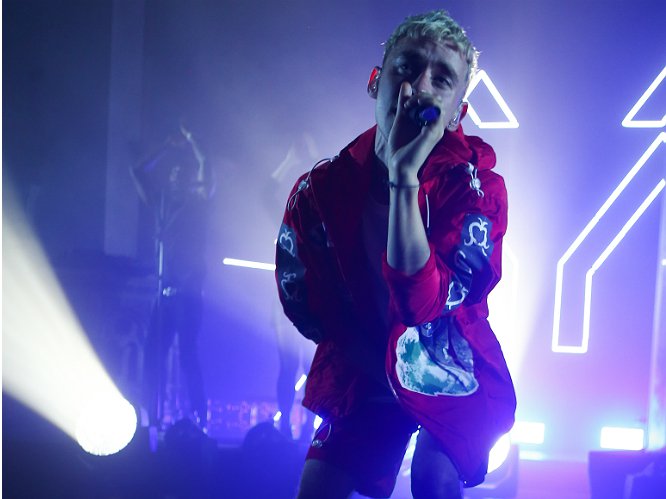
Social media, he believes, has allowed him, as well as the likes of Miley Cyrus, Shamir and Rihanna, to present a self that is unmediated by PRs and labels, or the potential misquotes and soundbites of the press. It's a positive thing, he says - though there are some exceptions. "Like Iggy Azalea, I feel like she should just have never had Twitter. I mean, you know, she can say whatever she wants, but I think she made a few... tweet mistakes."
"I really don't think she deserves the kind of treatment she gets though," he adds, starting to feel a little guilty. "I went on her Instagram recently, and literally more than 50% of the comments on any of her pictures are hateful comments about her. No-one deserves that kind of hate, you know? No-one deserves that."
He has less sympathy for her, though, when it comes to the cultural appropriation debate in which she became embroiled last year. When Azealia Banks cited her as an example of the privilege enjoyed by white hip hop musicians in an emotional radio interview, Azalea's response was to deny that race had any relevance in the conversation. "The cultural appropriation was a big one that she seemed to just kind of turn a blind eye to, which I think made a lot of people upset, quite rightly. [Banks] has lived her life as a black woman, and here is the most popular hip hop artist in her country not even speaking about where the music she's created comes from."
Have one conversation with Olly Alexander, and Damon Albarn's recent lamentation of the selfishness of modern pop music ("Young artists talk about themselves, not what’s happening out there. It’s the selfie generation") melts into ludicrous insignificance. "That kind of statement, I feel like it's one of those thing people say when they don't feel connected to the zeitgeist," he muses generously.
"They've outgrown it. There's a tendency to romanticise the past in any generation. It was always better in the past." He pauses. "I think it's fallacy. Every generation is as important as the next, and they do have things to say." They certainly do.
Years & Years play the BBC Radio 6 Music stage at Latitude Festival on Sunday, 19 July. For tickets and more information, click here.
- Their debut album Communion is out tomorrow (Friday 10 July).
More about: Years & Years





